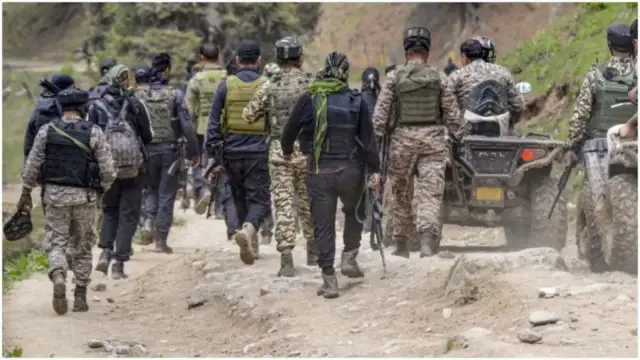Delhi votes 2025: AAP’s survival vs. BJP’s comeback in high-stakes showdown
Delhi: Delhi’s 2025 assembly elections pit AAP against BJP in a fiercely contested battle, with national politics, governance issues, and voter sentiments shaping the outcome.

Delhi: On Wednesday, starting at 7 AM, approximately 15.5 million voters across Delhi will cast their ballots in what is being seen as the first major electoral battle 2025. The outcome of this high-voltage assembly contest, covering all 70 seats, will determine the fate of 699 candidates and have significant implications for national politics. From the bustling commercial hubs of Lajpat Nagar and Connaught Place to the narrow lanes of Chandni Chowk and the tree-lined avenues of Jor Bagh, the election promises to be one of the most closely fought in recent years.
A city of contrasts heads to the polls
Delhi’s electorate represents a microcosm of India’s diversity—urban and rural, rich and poor, spanning various ethnicities and castes. From the colonial-era Lutyens' Delhi to the congested streets of Burari, and from the student accommodations in GTB Nagar to the working-class neighborhoods of Okhla, the city’s demographic complexity adds layers to the electoral battle.
Security has been tightened across 13,766 polling stations, with more than 42,000 Delhi Police personnel, 220 companies of the Central Armed Police Force (CAPF), and 19,000 home guards from Delhi, Uttar Pradesh, and Rajasthan deployed. "Once voting concludes, we will ensure the safe transportation of EVMs and related materials to secure storage," said Devesh Chandra Srivastava, Special Commissioner of Police (Crime).
A referendum on AAP’s governance
The votes will be counted on February 8. In 2020, the Aam Aadmi Party (AAP) dominated the elections, winning 62 of 70 seats, while the Bharatiya Janata Party (BJP) secured the remaining eight. Despite Delhi’s relatively small electorate, its political significance is amplified due to its status as the national capital and its demographic representation of broader India.
However, the past five years have been marked by intense friction between the elected AAP government and the Lieutenant Governor (LG), leading to governance paralysis. Issues like toxic air, infrastructure collapse, rising crime, and stalled policies have fueled discontent among voters. Ruchika Dhir, a 43-year-old IT professional from East Delhi, emphasized the importance of voting. "It’s our moral responsibility. The city needs responsible leadership," she said.
AAP battles corruption allegations, BJP eyes a comeback
For AAP, this election serves as a test of its popularity amid corruption allegations that have led to the arrest of several top leaders. The party has attempted to deflect anti-incumbency by replacing nearly one-third of its sitting MLAs and promoting its welfare schemes, which include free healthcare for seniors and financial aid for women. An AAP official expressed confidence in victory, saying, "People stand with AAP... If women voters rally behind us, we could cross 60 seats again."
The BJP, which has not won a Delhi assembly election in 27 years, hopes to capitalize on middle-class discontent and anti-incumbency. The party is banking on its sweeping victory in Delhi’s seven parliamentary seats in 2024 and has aggressively targeted AAP over corruption and misgovernance. "Kejriwal has looted and deceived Delhi. We will win under PM Modi’s leadership," said Delhi BJP chief Virendra Sachdeva.
Congress hopes for a revival
The Congress, a distant third in the race, has struggled in recent elections, failing to win a single seat in the past two assembly contests. However, its campaign, centered on Rahul Gandhi and the legacy of Sheila Dikshit, hopes to make inroads, particularly among minority and marginalized voters. Delhi Congress president Devender Yadav remains optimistic. "The political landscape in Delhi is shifting. We may see a Congress resurgence this time," he claimed.
A defining battle with National implications
This election marks the first major political battle of the year and will set the tone for national politics. The BJP seeks to maintain momentum after recent wins in Maharashtra and Haryana, while AAP fights to retain control of its stronghold amid mounting challenges. For Congress, a strong performance could bolster its standing within the opposition alliance.
Key voter concerns include governance, corruption, civic infrastructure, and crime. As Delhi’s electorate prepares to make its choice, the results will not only shape the future of the city but also influence the country’s larger political landscape.















